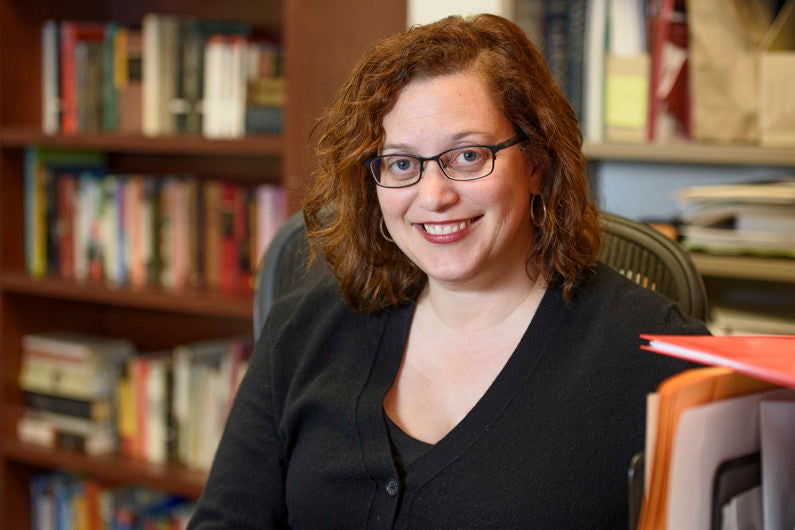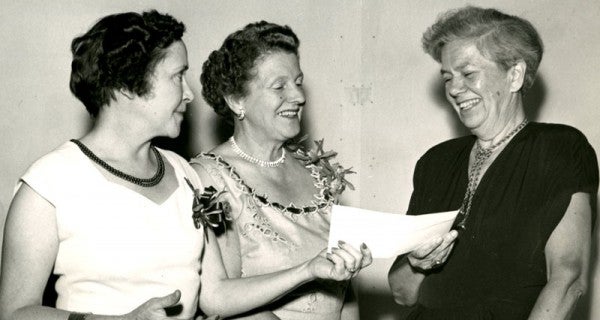New mentorship program updates its name
Starting autumn quarter, incoming students will be paired with SNGs – faculty and staff volunteers who will mentor first years and sophomores. The mentors were briefly known as SAGEs.
Incoming students this fall now will be matched with Stanford Newcomer Guides – or SNGs – faculty and staff volunteers who each will mentor between four and eight undergraduates up through the autumn quarter of their sophomore year or until they declare a major.
The program is designed to complement and support the academic advising students receive from professional staff within the Undergraduate Advising and Research (UAR) office over the course of all four years.
The SNG name recently replaced a previously selected acronym, SAGE (Stanford Advocates for Growth and Exploration). The name was changed after several undergraduate students brought forward concerns that the name misappropriated a word central to Native American culture and spiritual practice. In response, UAR collected student feedback through conversations and a survey and decided to move forward with Stanford Newcomer Guides, an alternative name that also had been under consideration.
The new mentorship program grew out of a substantial revamp of Pre-Major Advising at Stanford, an advising system that has been in place for decades. The SNG program places more emphasis on the entirety of a student’s undergraduate journey, well beyond conversations around course planning or pathways toward a particular major.
Alice Petty, director of pre-major advising, believes that the new SNG program will bring more focus to mentoring and the whole student experience.
“We are prioritizing self-authorship and helping students synthesize their Stanford experiences into a meaningful narrative. Respect for student voices and perspectives is the very foundation of this work,” said Petty.
Tribute to alumna Mabel Newcomer
The name Stanford Newcomer Guide also carries a Stanford-centric double meaning: It pays homage to one of the university’s most revered mentors, alumna Mabel Newcomer (AB 1913, AM 1914). The daughter of early Stanford English Professor Alphonso Newcomer, Mabel Newcomer was professor of economics at Vassar College for 40 years and became well regarded for the value she placed on mentoring and empowering undergraduate women. Vassar became a co-educational institution in 1969, 12 years after Newcomer’s retirement.
Newcomer also served as the only woman delegate to the United Nations conference on international finance, which set up the International Monetary Fund and the World Bank. She received lucrative job offers over the years, but was committed to teaching and mentoring undergraduates. Author of the 1959 book A Century of Higher Education for Women, Newcomer received the first American Association of University Women achievement award in the field of social sciences.
Engaging faculty and staff volunteers
Now that the program name has been finalized, UAR is recruiting up to 375 SNG volunteers from among Stanford faculty and staff to kick off this autumn’s program.
SNGs will be matched this summer with both incoming first-year and transfer students through a new UAR process. Beyond their academic interests, a broad-based profile will be gathered from incoming students that captures fields of interest and inquiry, including arts, sports, hobbies and recreation, and culture and community. A mirroring profile collected from SNGs will ensure thoughtful central matching. Since pairings will not take housing placement into consideration, students, through their SNG cohorts, will build friendships with peers whom they may not have met otherwise.
Guides will meet with their student cohort groups during New Student Orientation, and regular quarterly individual meetings will continue into the sophomore year.
SNGs’ conversations with students will focus on the breadth of the Stanford experience – including the college transition, values identification, dealing with struggle and resilience, and how to productively blend academic and co-curricular experiences. SNGs will also be educating students about important campus resources.
“Our goal is for every student to connect with the high-impact experiences and opportunities that are best suited to their individual interests and goals, as well as the campus resources that can help them thrive,” added Petty. “A good mentor – someone who is a careful listener, patient and accessible, someone genuinely interested in the whole student, and in advocating for academic exploration, critical thinking and intellectual curiosity – can have a tremendous impact on a student’s experience. It really is one of the most rewarding ways to serve Stanford.”


